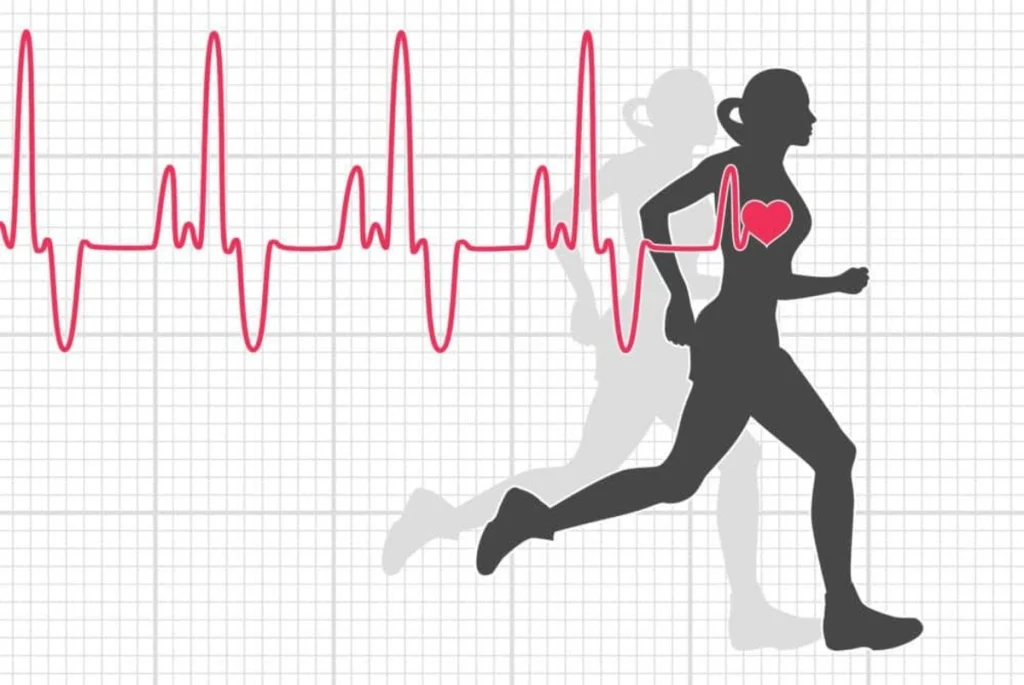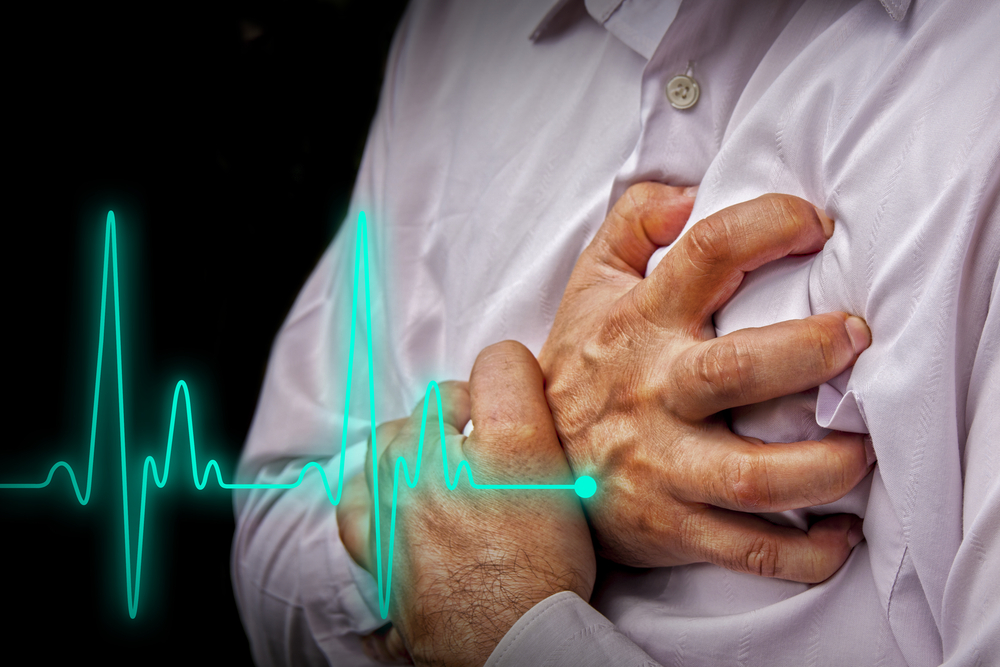When we think about our heart, the first thing that often comes to mind is its importance in keeping us alive. But there’s more to heart health than just its ability to pump blood throughout the body. One crucial aspect of heart function is the heart rate — the number of times your heart beats in a minute. Understanding what constitutes a normal heart rate can help you stay on top of your heart health and recognize potential issues early on.
What Is Heart Rate?
It refers to the number of times your heart beats per minute (bpm). It’s a measure of how hard your heart is working to circulate blood, delivering oxygen and nutrients to your body’s cells. The heart rate can vary depending on several factors, such as age, activity level, emotions, and overall health.

What Is Normal Heart Rate?
A normal value for most adults typically ranges between 60 to 100 beats per minute when at rest. This is known as the resting heart rate and is a vital indicator of your heart’s efficiency and health. Several factors can influence your heart rate, including:
Age
Children usually have faster than adults. For instance, a normal heart rate for a newborn could be between 100 to 160 bpm, while for teenagers, it may range from 60 to 100 bpm.
Fitness Level
A well-trained athlete might have a resting heart rate closer to 40 to 60 bpm, as their heart is more efficient in pumping blood due to regular cardiovascular exercise.
Emotions
Stress, anxiety, or excitement can temporarily elevate your heart rate. Similarly, relaxation or deep breathing exercises may lower it.
Health Conditions
Certain medical conditions such as anemia, thyroid issues, or infections can influence your heart pumping, causing it to rise or fall outside the normal range.
Factors Affecting Heart Rate
Exercise
Physical activity naturally raises your heartbeat. During exercise, your heart works harder to supply more oxygen to your muscles. Afterward, this increase should gradually return to normal as you cool down.
Medications
Some medications, such as beta-blockers, slow down the heart rate, while stimulants like caffeine or certain decongestants can increase it.
Temperature
Extreme temperatures can affect your heart. In hot weather, your heart rate may increase as your body works to cool down, while in colder conditions, your heart rate may drop as your body conserves energy.
Body Position
When you move from a sitting or lying position to standing, your heart rate may increase slightly to help maintain blood flow and blood pressure.

Abnormal Heart Rates: When to Be Concerned
While a resting heart rate between 60 and 100 bpm is considered normal for most adults, it is essential to recognize when your heart rate may be too fast or too slow. Here’s a look at abnormal heart rates and what they could signify:
Tachycardia
(Fast Heart Rate): If your resting heart rate is consistently above 100 bpm, it could be a sign of tachycardia. This condition can be caused by various factors, including stress, fever, dehydration, anemia, or underlying heart conditions like arrhythmia.
Bradycardia
(Slow Heart Rate): A resting heart rate under 60 bpm can indicate bradycardia. This condition is common among athletes due to their efficient cardiovascular systems. However, in non-athletes, bradycardia can be a sign of an underlying issue, such as a heart block or problems with the electrical signals in the heart.
Irregular Heart Rate
If your heart rate feels irregular, such as skipped beats or fluttering sensations in your chest, it may be an indication of an arrhythmia. These irregularities can range from harmless to life-threatening, depending on the underlying cause.
How to Measure Your Heart Rate
Measuring your heart rate is easy and can be done in a few simple steps:
- Find Your Pulse: You can check your pulse at various points on your body. The most common spots are on the inside of your wrist (radial pulse) or on the side of your neck (carotid pulse).
- Count the Beats: Once you’ve found your pulse, count the number of beats for 30 seconds and multiply that number by 2 to get your heart rate in beats per minute.
- Check Regularly: It’s important to track your heart rate regularly, especially if you’re undergoing treatment for any heart condition or are monitoring the effects of medications or exercise.
Fact
How to Improve Your Heart Health
Maintaining a normal and healthy heart rate is an important part of overall heart health. Here are some strategies to help improve and maintain your heart health:
- Exercise Regularly: Physical activity strengthens your heart, improving its efficiency and helping maintain a healthy resting heart rate.
- Eat a Heart-Healthy Diet: A balanced diet rich in fruits, vegetables, whole grains, lean proteins, and healthy fats can support heart health and regulate blood pressure and cholesterol.
- Manage Stress: Stress can cause temporary spikes in heart rate. Practicing relaxation techniques such as deep breathing, meditation, or yoga can help keep your heart rate steady.
- Avoid Smoking and Limit Alcohol: Smoking and excessive alcohol consumption can harm the heart and lead to an abnormal heart rate over time.
Conclusion
Understanding your heart rate is an essential aspect of monitoring your heart health. A normal resting heart rate for most adults is between 60 to 100 beats per minute, and variations can occur depending on age, fitness level, emotional state, and health conditions. Paying attention to abnormal heart rates, such as tachycardia or bradycardia, and consulting with a healthcare provider if needed can help prevent potential heart-related issues. By adopting healthy lifestyle habits such as regular exercise, a balanced diet, and stress management, you can ensure that your heart continues to beat efficiently for years to come.
Do You Know
FAQs
1. What is a normal resting heart rate?
A normal resting heart rate for adults is between 60 to 100 beats per minute (bpm). Athletes or highly fit individuals may have a lower resting rate.
2. What causes an abnormal heart rate?
Abnormal heart rates can result from stress, dehydration, medication, fever, or conditions like arrhythmias or thyroid problems.
3. What is tachycardia and bradycardia?
- Tachycardia: A heart rate over 100 bpm, often caused by stress or heart conditions.
- Bradycardia: A heart rate below 60 bpm, which could indicate a heart problem or be normal for athletes.
4. How can I check my heart rate?
Find your pulse on your wrist or neck, count the beats for 30 seconds, then multiply by 2 to get your heart rate per minute.
5. When should I see a doctor about my heart rate?
Consult a doctor if you experience a consistently rapid, slow, or irregular heart rate, or symptoms like dizziness or chest pain.